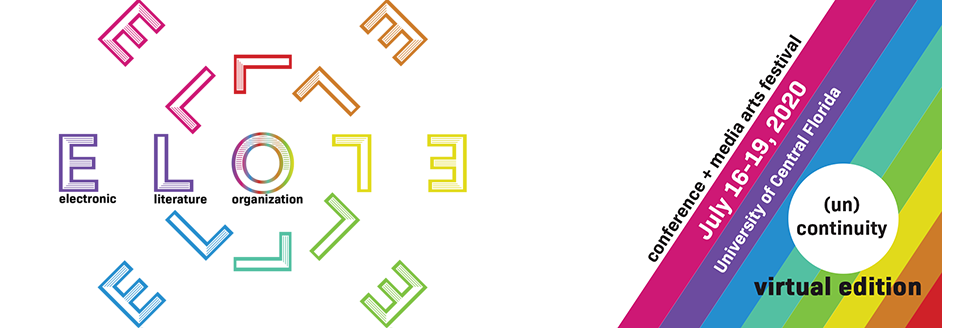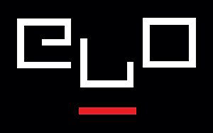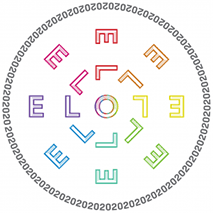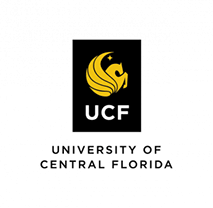Proposal Title
Narrative as a River I: (Un)continuity and Creativity; or, Cumulative Works of Select E-lit Practitioners
Submission Type
Conference Talk - Panel
Abstract
As narratives seem to flow on in (dis)continuity and (un)continuity, hypermedia narrative, especially, can have a pattern like the flow of the Mississippi over the centuries—a chronology of flow and erasure, the emergence of new channels and the obscuring of old ones. As a thematic base for the 4th annual Narratives Panel, these dual panels will examine the larger or even overall trajectory of specific practitioners and scholars over the years in their work on story-making and story-telling. In this first panel, practitioners and scholars of electronic literature tell the narratives of their own work's development over time.
In an opening talk, Marjorie C. Luesebrink (M.D. Coverley) will extend the metaphor of the mapping of the Mississippi. This layered chronology of the river in flux could be applied to many of the artistic and scholarly career trajectories we see in electronic literature. In looking for example, at the structure, content, technology, and style of a series of works, we can trace this movement as it is both continuous and remarkably un-continuable.
Next, Jennifer Dellner’s paper will focus on the interaction of nature and built environments in the work of MD Coverley, from Califia to Tintowns to 2018’s Riding the Rust Belt. It theorizes that the ongoing theme in the works themselves about nature and the land itself containing treasured resources whose purpose humankind experiences as a mystery through both misuse and discovery, is also played out in Coverley’s writings about the technological affordances influencing the creation of these works: what they allow for and what they do not. The built environment of the narrative structures, themselves experimental and bending and “recycling” the functions and use of widely available tools (http://califia.us/LegendsofMichigami/riding.htm), opens up provocative questions about the tools and landscapes found within the works themselves and suggests and/or provokes new eco-critical approaches to her work.
Finally, Caitlin Fisher will discuss her changing relationship to digital tools and narrative techniques over the past 20 years, alongside some constant themes in their corpus of work – the personal, domestic spaces, archives and excess. There is continuity in the poetics of Fisher’s creative life but, as Heraclitus reminds us, you can’t step into the same river twice.
Narrative as a River I: (Un)continuity and Creativity; or, Cumulative Works of Select E-lit Practitioners
As narratives seem to flow on in (dis)continuity and (un)continuity, hypermedia narrative, especially, can have a pattern like the flow of the Mississippi over the centuries—a chronology of flow and erasure, the emergence of new channels and the obscuring of old ones. As a thematic base for the 4th annual Narratives Panel, these dual panels will examine the larger or even overall trajectory of specific practitioners and scholars over the years in their work on story-making and story-telling. In this first panel, practitioners and scholars of electronic literature tell the narratives of their own work's development over time.
In an opening talk, Marjorie C. Luesebrink (M.D. Coverley) will extend the metaphor of the mapping of the Mississippi. This layered chronology of the river in flux could be applied to many of the artistic and scholarly career trajectories we see in electronic literature. In looking for example, at the structure, content, technology, and style of a series of works, we can trace this movement as it is both continuous and remarkably un-continuable.
Next, Jennifer Dellner’s paper will focus on the interaction of nature and built environments in the work of MD Coverley, from Califia to Tintowns to 2018’s Riding the Rust Belt. It theorizes that the ongoing theme in the works themselves about nature and the land itself containing treasured resources whose purpose humankind experiences as a mystery through both misuse and discovery, is also played out in Coverley’s writings about the technological affordances influencing the creation of these works: what they allow for and what they do not. The built environment of the narrative structures, themselves experimental and bending and “recycling” the functions and use of widely available tools (http://califia.us/LegendsofMichigami/riding.htm), opens up provocative questions about the tools and landscapes found within the works themselves and suggests and/or provokes new eco-critical approaches to her work.
Finally, Caitlin Fisher will discuss her changing relationship to digital tools and narrative techniques over the past 20 years, alongside some constant themes in their corpus of work – the personal, domestic spaces, archives and excess. There is continuity in the poetics of Fisher’s creative life but, as Heraclitus reminds us, you can’t step into the same river twice.




Bio
SPEAKERS:
Marjorie Coverley Luesebrink writes hypermedia fiction as M.D. Coverley. Her full-length interactive, electronic novel, Califia (2000), is available from Eastgate Systems. Egypt: The Book of Going Forth by Day was published in 2006 as an artist’s book. Recent web fiction includes Riding the Rust Belt (2018), Pacific Surfliner (2017), Hours of the Night (2016) with Stephanie Strickland, and The 2015 Fukushima Pinup Calendar (2015). She is a member of the Board of Directors of the Electronic Literature Organization and was given the Marjorie C. Luesebrink Career Achievement Award in 2016. http://califia.us
Caitlin Fisher directs both the Augmented Reality Lab and the new Immersive Storytelling Lab at York University where she held the Canada Research Chair in Digital Culture 2004-2014. A 2013 Fulbright Chair, Fisher is the recipient of many international awards for digital storytelling including the Electronic Literature Organization Award for Fiction and the Vinaròs Prize for AR poetry. She serves on the international Board of Directors for both the Electronic Literature Organization and HASTAC, the Humanities, Arts, Science, Alliance and Collaboratory. Currently she is engaged in a four year SSHRC-funded research project exploring the potential of long-form interactive narrative in virtual and augmented reality.
Jennifer Dellner is Professor of English and Literature, and Program Chair, Liberal Arts, at Ocean County College in New Jersey, where she also co-leads its faculty center. She completed the Graduate Certificate in Digital Humanities at the University of Victoria, B.C. in 2015. She is a board member of the Association for Interdisciplinary Studies (AIS) as the VP for Development and Director of Digital Initiatives. In addition to her current work on digital comics, she is working on a project that uses mapping to investigate the relationship between debris and technology in Joyce’s Ulysses.
CHAIR:
Lai-Tze Fan is Assistant Professor of Rhetoric and Digital Media at the University of Waterloo, working in the Department of English and the Critical Media Lab. Fan serves as Associate Editor and the Director of Communications of electronic book review, as well as Co-Editor of The Digital Review. Her research on digital storytelling, media materiality and infrastructure, and the critical digital humanities has been published in Mosaic, Convergence, Digital Studies, Media Theory, and elsewhere. Fan is co-editor of the forthcoming collection Post-Digital: Critical Debates in electronic book review (Bloomsbury Academic 2020).